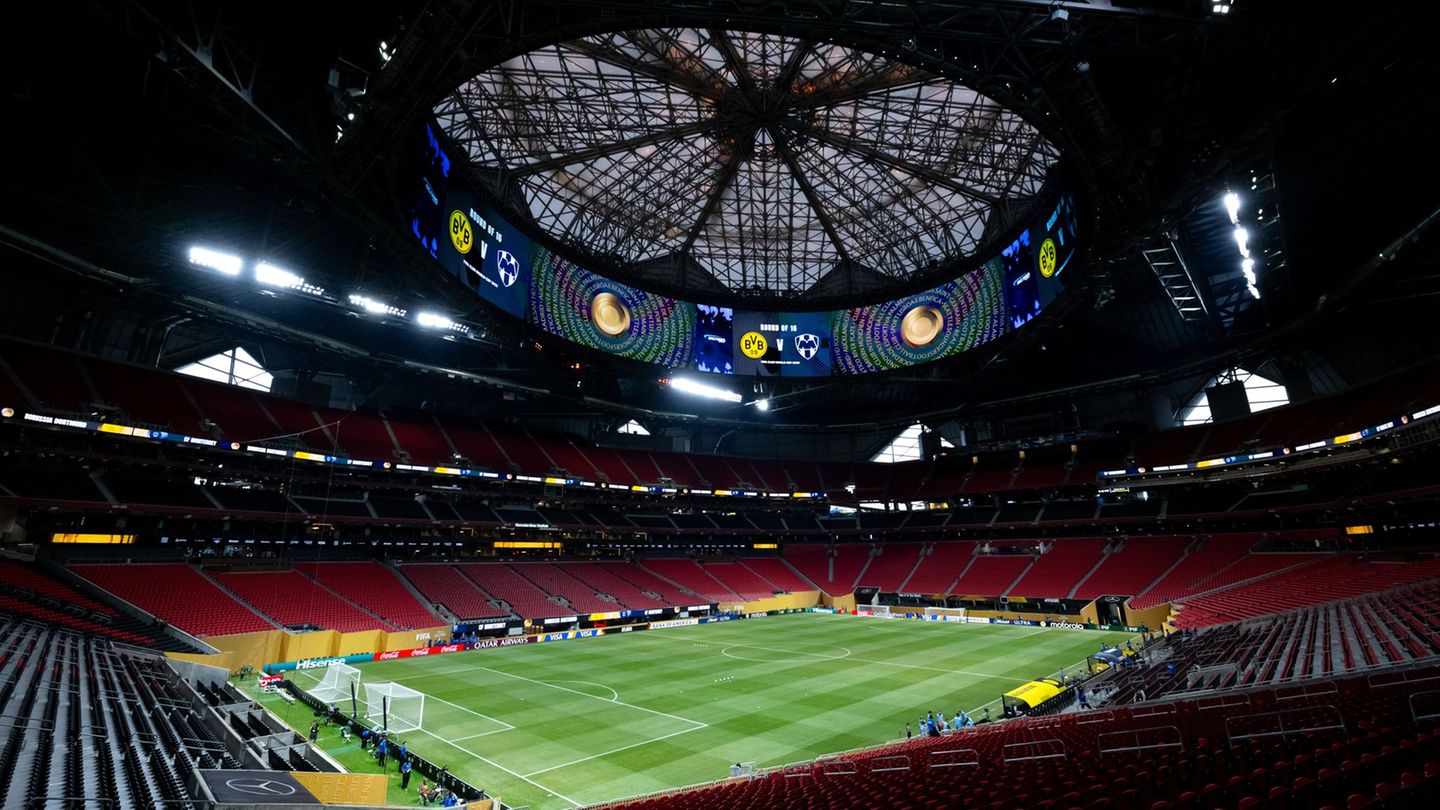Industrial location
Fear of relegation: German industry under pressure
Copy the current link
Economic slowdown, constant negative headlines: the mood in the German economy is bad. It is uncertain when things will start to look up.
German industry is coming under increasing pressure – but the failure of the traffic light government threatens to slow down important projects. The economic crisis could become even worse. The mood is in a “minor,” said Economics Minister Robert Habeck (Greens) at an industrial conference in Berlin. People are talking about the economic decline of Germany and Europe.
Habecks wants immediate measures
The Vice Chancellor – in office for three years – is pushing for quick decisions to relieve the industry of electricity costs. In order to act at short notice, measures are possible during this legislative period. Habeck mentioned a reduction in network fees through a state subsidy and a law that provides state funding for the construction of new gas power plants. The new Bundestag election following the breakup of the government coalition made up of the SPD, Greens and FDP is scheduled for February 23rd.
Habeck is looking for solidarity with Union
The economics minister said the best way to reduce network fees would be to agree on a supplementary budget for the current year. In order to finance a federal subsidy, funds released by the postponement of the Intel chip factory in Magdeburg could be used. Habeck had already suggested that the first, actually planned tranche of Intel funds could be used to reduce network fees by four billion euros next year. Another way is legal adjustments.
The economy has long complained about high electricity costs compared to other countries. A federal subsidy to partially finance the transmission network costs of up to 5.5 billion euros was actually planned for this year. However, as a result of a budget ruling by the Federal Constitutional Court, the federal government canceled this subsidy for savings reasons.
Industry: Terrain already sloping
Industry President Siegfried Russwurm said: “The high electricity prices endanger industrial production and jobs in Germany.” Reducing the sharply rising network fees as an immediately effective measure could make a short-term contribution. “We have no time to waste.” Jürgen Kerner, second chairman of the IG Metall union, called on the CDU and CSU to face their responsibilities.
With a view to the threat of a longer government formation after the election, Russwurm said that six months were in danger of being lost – in a situation in which decisions against investments in Germany, or at least not in favor of investments in Germany, were made every day and every week. The terrain is already “sloping”. Fundamental reforms are actually needed.
As an immediate measure, Chancellor Olaf Scholz (SPD) also wants to stabilize network costs. However, the red-green government no longer has a majority in the Bundestag. With regard to the Union and the FDP, Habeck said that the federal government would seek talks with the democratic opposition. “But they have to want it too. What’s important is that we’re really running out of time there.” The measure must be decided in the remaining weeks of this year.
Union and FDP cautious
FDP parliamentary group vice-president Lukas Köhler said: “Lower network fees to reduce electricity costs are important, but Habeck’s specific proposal is dubious. Unfortunately, the Minister of Economic Affairs does not have an answer as to where else in the budget he wants to save the money to reduce network fees. ” Structural reforms in energy and economic policy are necessary. It is up to the citizens to make a decision on February 23rd.
The CDU economic politician Julia Klöckner said that the industrial policy record of the Economics Minister and the Federal Chancellor was disastrous. “Announcement policy, micromanagement and a failed subsidy policy have significantly accelerated the crisis in the industry. Many industrial workers fear for their jobs.” The red-green remaining government is faced with the shards of its policy. A real policy change is necessary.
Bad news from the industry is piling up
The industry crisis could worsen. Negative news from companies is already piling up. The auto industry, which is so important for Germany, is deep in crisis. The supplier Bosch is planning to cut thousands of jobs, and the working hours of many employees in Germany are also to be reduced.
For the car manufacturer Volkswagen, in addition to cutting tens of thousands of jobs, closing several plants is now an option on the way to economic stability. And Germany’s largest steel company, Thyssenkrupp Steel, is also taking the red pencil – within six years the number of jobs is to be reduced from around 27,000 to around 16,000.
Germany is lagging behind
Germany is in danger of being passed down internationally because of its weak growth – industrial production is falling and there is a shortage of workers. When it comes to productivity, Germany is lagging behind, said Moritz Schularick, President of the Kiel Institute for the World Economy. Ten years ago, Germany was in sixth place in the world competitiveness rankings, and today it is in 24th place.
With Donald Trump’s election victory in the USA, uncertainties have increased further. The US President-elect has already announced higher tariffs on goods from Mexico and Canada. They are also expected to increase for China. Are there also higher tariffs for imports from Europe? Russwurm: “That would do us massive damage.”
Germany and the EU need to do their homework and think bigger, said Habeck. For him that means: Many billions more for many more investments to bring the dilapidated infrastructure into shape and to encourage investments by companies. Habeck said he made no secret of the fact that greater answers were needed than had been possible in previous years. The FDP rejected a reform of the debt brake.
dpa
Source: Stern




